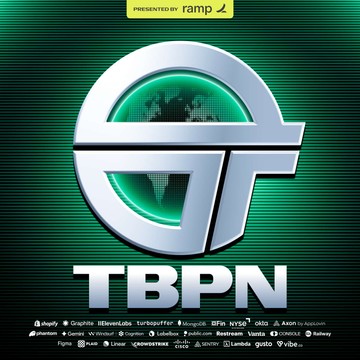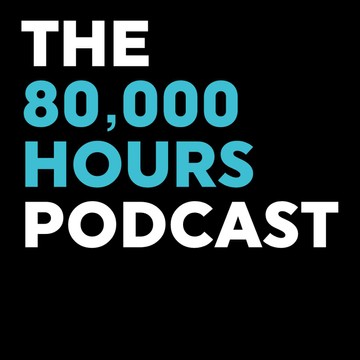

Lennart Heim
Analyst at RAND, specializing in technology policy and its impact on international relations.
Top 10 podcasts with Lennart Heim
Ranked by the Snipd community

260 snips
Aug 14, 2025 • 1h 7min
H20s to China + 15% with Chris Miller and Lennart Heim
This discussion features Chris Miller, an expert on semiconductor strategy and author of "Chip War," alongside Lennart Heim from RAND, a technology policy specialist. They dissect the recent U.S. ban on Nvidia's H20 AI chips to China and the surprising reversal that allows sales after implementing a 15% export fee. The conversation highlights the geopolitical ramifications for AI competition, the importance of high-bandwidth memory, and the complexities of semiconductor export regulations amidst escalating tensions between the U.S. and China.

102 snips
Jun 13, 2025 • 2h 21min
Chime Climbs, Tech Titans Join Army Reserve, Meta Buys 49% of Scale AI | Joshua Steinman, Bernt Børnich, John Doyle, Emily Sundberg, Lennart Heim
This discussion features Joshua Steinman, founder of Galvanick, who delves into Israeli airstrikes on Iran’s military, shedding light on precision targeting and historical tensions. Bernt Børnich, CEO of 1X Technologies, shares his vision for NEO, a humanoid robot designed for home assistance and the complexities of scaling production. John Doyle highlights privacy concerns in global cellular networks with his company Cape. Emily Sundberg reflects on developer enthusiasm at Apple's WWDC, while Lennart Heim examines the influence of AI resources and China's advancements.

83 snips
Jun 22, 2023 • 3h 13min
#155 – Lennart Heim on the compute governance era and what has to come after
Lennart Heim, a research fellow at the Center for the Governance of AI, dives into the pressing need for compute governance amid rapid AI advancements. He discusses the potential misuse of AI technologies by malicious actors and the challenges of controlling access to powerful models. With a focus on regulating supercomputers, Lennart explains how restricting chip access may be our best safeguard. He also highlights the geopolitical implications of AI technology and the vital role of skilled individuals in shaping effective governance in this evolving landscape.

71 snips
May 14, 2025 • 49min
China’s catching up to US AI… Here’s why it won’t matter
Lennart Heim, a researcher at RAND Corporation specializing in AI and geopolitics, discusses why China's AI advancements won't eclipse the US's position. He emphasizes the crucial role compute power plays in AI development, detailing the economic impacts of training models. The conversation also covers the geopolitical dynamics of AI compute, debating the balance between centralized and decentralized resources. Finally, he touches on the importance of global collaboration in AI standards to navigate the complexities of technological competition.

52 snips
Aug 13, 2025 • 1h 11min
EMERGENCY POD: H20s to China + 15% with Chris Miller and Lennart
Chris Miller, author of Chip War, and Lennart Heim, a RAND analyst, dive into the complexities of AI chip sales to China. They discuss the tradeoffs and strategic implications of selling advanced technology amidst rising tensions. The conversation highlights why China seems uninterested in the H20 chips and emphasizes the importance of high-bandwidth memory and semiconductor equipment in this geopolitical chess game. The duo explores the intricate relationship between technology policy and international relations, shedding light on the future of U.S.-China tech dynamics.

29 snips
Dec 23, 2024 • 1h 30min
AI Geopolitics in o3's Age with Chris Miller + Lennart Heim
Chris Miller, author of "Chip War" and a technology geopolitics expert, joins Lennart Heim, an information scientist at RAND, to dissect AI's geopolitical landscape. They delve into China's surprising algorithmic advancements and the shifting focus of U.S. export controls. The duo highlights the complex dynamics of AI chip production and the challenges posed by national security concerns. They also explore the evolving AI business models and the need for collaboration amid fierce US-China competition.

25 snips
Feb 3, 2023 • 1h 13min
AI Compute 101: The Geopolitics of Giant Models
Lennart Heim, a researcher at the Center for the Governance of AI, and Chris Miller, author of the acclaimed 'Chip War', dive into the intricate world of AI and semiconductor technology. They explore the financial viability of developing AI systems and the fierce competition for specialized chips essential to these technologies. Topics like chip smuggling versus drug smuggling add a humorous twist to their serious discussions on geopolitics and the future of computing. Their insights reveal the complexities of funding and access in today's AI landscape.

24 snips
Jan 15, 2025 • 1h 3min
EMERGENCY POD: AI Diffusion Export Controls
Lennart Heim, an information scientist at RAND specializing in AI diffusion export controls, and Jimmy Goodrich, a RAND advisor with insights into AI regulations, discuss critical current events. They explore the Biden administration's export controls, dissecting who is allowed to build data centers amidst U.S.-China competition. The conversation dives into the complexities of AI chip regulation, challenges like chip smuggling, and the geopolitical implications of global data center construction. They highlight the delicate balance between innovation and national security.

18 snips
Mar 4, 2025 • 53min
The UAE's AI Ambitions
Georgia Adamson, a Research Associate at the CSIS Wadhwani AI Center, and Lennart Heim, an Associate Information Scientist at RAND, delve into the UAE's ambitious AI initiatives. They discuss the UAE's role as a burgeoning tech investment hub, spotlighting a $100 billion investment vehicle and its partnership with Microsoft and G42. The duo also examines U.S. chip export controls and the implications of AI collaboration with countries like China. They highlight the strategic diplomatic balancing act at play in this fast-evolving landscape.

17 snips
Jan 23, 2025 • 1h 6min
Lennart Heim on the AI diffusion rule
Lennart Heim, an information scientist at the RAND Corporation specializing in AI governance, delves into the Biden administration’s diffusion framework aimed at regulating advanced AI. He discusses the geopolitical implications of this framework and its potential legacy under different administrations. The conversation highlights the complexities surrounding AI export controls, particularly concerning national security and competition with China. The impact on major companies like NVIDIA and AMD, along with the ethical concerns surrounding global AI distribution, are also key topics.


